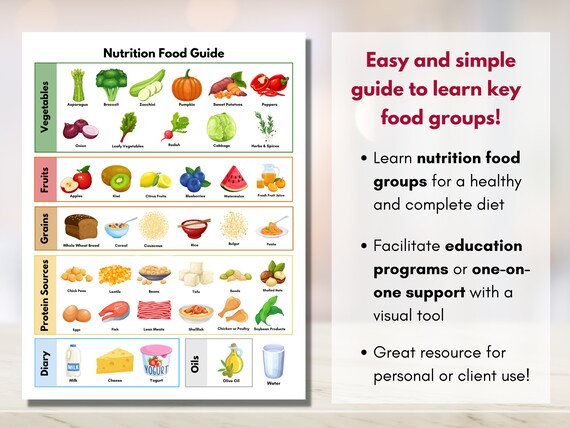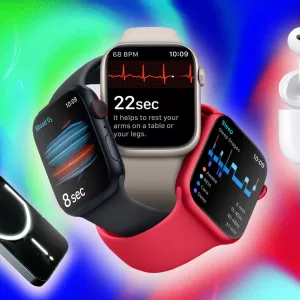
Introduction to Personalized Nutrition
Understanding Personalized Nutrition and its Significance
Personalized nutrition is an innovative approach to health and diet wherein meal plans are customized according to an individual’s genetic makeup. The significance of this lies in the notion that people metabolize nutrients differently. What this means is essentially diet plans, which were primarily generalized, can now be tailored, potentially leading to better health outcomes and enhanced wellness. As someone who is navigating through the complexities of nutrition, I have found this personalized approach to be profoundly impactful.
– **Why Personalized Nutrition?**: The concept rests on the premise that a one-size-fits-all diet plan simply doesn’t work for everyone. Our bodies are unique, and so are the ways they respond to different foods.
– **Individual Needs**: By examining genetic profiles, one can uncover specific nutritional needs, sensitivities, and even predispositions to certain conditions.
– **Customization**: The goal is to tailor a diet plan that would mitigate health risks while optimizing overall health and well-being.
The Evolution of Diet Planning: From One-Size-Fits-All to Personalization
Diet planning has seen a considerable transition from the traditional generalized recommendations to a more personalized approach. Historically, dietary guidelines were developed based on population-wide studies, which obviously overlooked individual variances.
– **Traditional Diets**: These were based on average needs and recommended daily allowances, which aimed to work for the majority but didn’t consider the outliers.
– **Emergence of Personalized Nutrition**: With advancements in science, particularly genomics, it became clear that dietary needs are far from universal.
– **Genetic Testing**: The role of genetic testing in nutrition has grown exponentially. It provides a blueprint of what one’s body might need more or less of, or might react adversely to.
– **Advantages**: Personalization has several advantages, including the prevention of nutrition-related diseases, identification of optimal nutrient intake for recovery or performance, and elimination of guesswork in constructing a healthy diet.
As I continue to explore the depths of this cutting-edge field, the possibilities seem endless. From empowering individuals to make better food choices to potentially revolutionizing public health guidelines, the implications are substantial. Consideration for ethical, legal, and privacy concerns regarding genetic data is paramount as we venture further into the realm of personalized nutrition. Not only is it enlightening, but it also underscores the importance of treating health as the unique and complex aspect of human life that it is.
The Science Behind Personalized Nutrition
Understanding the science behind personalized nutrition helps us to appreciate the importance of tailoring diet plans to an individual’s genetic profile. Scientific studies have consistently highlighted the benefits of customized nutrition strategies, which not only improve general health but also assist in managing weight effectively and mitigating risks of various illnesses.
The Role of Genetics in Nutrition
Genetics play a crucial role in determining how our bodies react to different foods and nutrients. By analyzing one’s genetic makeup, personalized nutrition plans can be developed to support metabolic health and to optimize nutrient intake based on individual needs. A personalized approach takes into account genetic variations such as polymorphisms in genes that affect metabolism, absorption, and utilization of nutrients. Here are key points on how genetics influence our nutritional requirements:
– **Metabolic Rate**: Genetic factors determine the speed of metabolism, which influences energy requirements and weight management.
– **Nutrient Absorption**: Variations in genes can affect the body’s ability to absorb and utilize vitamins and minerals, necessitating tailored nutrient intake.
– **Food Tolerances and Intolerances**: Genetic markers can signal the potential for lactose intolerance, gluten sensitivity, or other food-related issues, guiding dietary restrictions.
– **Disease Risk**: Genetic screening can identify increased risks for conditions like type 2 diabetes or heart disease, allowing for preventative nutritional strategies.
Analyzing the Body’s Unique Responses to Different Foods
Personalized nutrition plans are not solely based on genetic information; they also consider how an individual’s body reacts to different types of food. Metabolic responses can vary widely between people, even when consuming identical meals. Therefore, the incorporation of personalized nutrition involves:
– **Blood Sugar Responses**: Monitoring how certain foods affect blood glucose levels to tailor a diet that maintains stable blood sugar.
– **Inflammation**: Identifying foods that trigger inflammatory responses to reduce the risk of chronic diseases.
– **Gut Microbiome**: Analyzing the composition of gut bacteria to optimize digestive health through a personalized diet.
– **Energy Levels**: Observing fluctuations in energy after eating certain foods to enhance overall vitality.
By assessing these responses, nutritionists can create a more effective nutrition plan that aligns with the individual’s unique physiological reactions, leading to better health outcomes.
In summary, the convergence of genetics and individual metabolic responses forms the foundation of personalized nutrition. By leveraging scientific insights, healthcare practitioners can devise diet plans that not only cater to one’s unique genetic blueprint but also their specific lifestyle and health goals. This targeted approach has the potential to revolutionize the way we understand and manage our health through diet.
Personalized Nutrition and Health Conditions
As a healthcare practitioner specializing in nutrition, my experiences underscore the transformative impact personalized nutrition can have on managing and potentially preventing health conditions. The careful integration of genetic profiling and dietary customization allows me to approach each patient’s health challenge with precision and empathy. Here’s a deeper look at how personalized nutrition relates to specific health conditions.
Nutrition Strategies for Specific Health Conditions
– **Heart Disease**: With heart disease, I focus on creating diets rich in omega-3 fatty acids and low in saturated fats. If genetic tests suggest a high sensitivity to cholesterol, for instance, the plan will include foods that can help manage lipid levels more effectively.
– **Diabetes**: For those at risk of diabetes or managing the condition, monitoring carbohydrate intake and ensuring a balance of macronutrients is key. Genetic information may point to a need for increased dietary fiber or particular types of carbohydrates that impact blood sugar levels less drastically.
– **Obesity**: Personalized nutrition aids in tackling obesity by considering genetic factors affecting metabolism and fat storage. Dietary changes are tailored to enhance metabolic rate and promote satiety, often with adjustments in protein and fiber intake.
– **Gastrointestinal Disorders**: For conditions like IBS or Crohn’s disease, personalized plans often prioritize the avoidance of trigger foods and incorporate foods known to support gut health, drawing on insights from the analysis of the gut microbiome.
Each diet plan is a dynamic entity, evolving as we gather more data from patients’ responses to different foods and track changes in their health markers. By examining both genetic predispositions to certain conditions and the current state of health, personalized nutrition becomes a strategic tool in managing patients’ wellbeing.
Case Studies: Success Stories of Personalized Diet Plans
The evidence supporting personalized nutrition is not just anecdotal; it’s visible in the successful outcomes of my patients’ journeys. Let me share a couple of case studies:
– **Case Study 1**: A patient with a family history of type 2 diabetes and personal genetic markers indicating a higher risk was placed on a specialized diet that focused on low-glycemic index foods and mindful carbohydrate selection. Over six months, not only did the patient reduce their HbA1c levels, but they also reported improved energy levels and reduced cravings.
– **Case Study 2**: Another patient, struggling with unexplained weight gain and fatigue, underwent genetic testing that revealed a slow metabolism and a sensitivity to certain food additives. Their customized diet eliminated these additives and emphasized metabolic-boosting foods. The results were a gradual, sustainable weight loss and a significant boost in daily energy levels.
Through these case studies and ongoing research, the efficacy of personalized nutrition plans in managing health conditions is becoming increasingly clear. Tailoring diet to an individual’s genetic profile not only aids in the treatment of existing conditions but also offers a proactive approach to preventing potential health issues.
The Personalized Nutrition Process
Embarking on the journey of personalized nutrition, I begin with an in-depth assessment of my individual health needs and goals. This process may seem complex, but it’s an integral part of personalizing my diet that can lead to long-lasting health benefits.
Assessing Individual Requirements: Tests and Data Gathering
The first step involves a series of comprehensive tests to gather data about my unique genetic makeup and current health status. Here is what I encountered during this phase:
– **Genetic Testing**: I worked with professionals to understand my DNA analysis, which highlighted specific genetic predispositions affecting my nutritional needs.
– **Blood Work**: Through blood tests, I got insights into various biomarkers, including lipid profiles, glucose levels, and vitamin deficiencies, allowing for a customized nutrition plan.
– **Lifestyle Review**: I provided details on my daily habits, exercise levels, and stress factors, which play a role in shaping my nutritional requirements.
– **Food Diary Analysis**: Keeping a record of my intake highlighted patterns and preferences in my diet, crucial for tailoring my meal plan.
With this information at hand, the goal is to interpret the data to create a nutrition strategy that aligns with my body’s needs.
Developing a Nutrition Plan: The Role of Dietitians and Nutrigenomics
Moving forward with the data, the expertise of a dietitian becomes pivotal. Here’s how they guide the formulation of my personalized nutrition plan:
– **Interpreting Genetic Data**: Dietitians help me make sense of my genetic information in the context of nutrition and provide recommendations that are genetically optimized.
– **Creating a Custom Meal Plan**: Based on my data, dietitians develop a meal plan that covers all the bases— from macro and micronutrients to specific food sensitivities or preferences I may have.
– **Nutrigenomics Integration**: They employ principles of nutrigenomics, ensuring my diet addresses any genetic propensities towards certain diseases or metabolic issues.
– **Adaptability and Education**: It’s a learning process. Dietitians teach me how to make informed food choices and adjust my diet as my lifestyle or health objectives change over time.
With their assistance, my personalized nutrition plan is not just a static set of guidelines but a dynamic framework that evolves as I do. Transparency in the process gives me confidence, and the education I receive enables me to take ownership of my health. Through this tailored approach, I anticipate not only improved well-being but also a more profound understanding of my body’s nutritional demands.
Technology’s Role in Personalized Nutrition
Technological advancements are revolutionizing the way personalized nutrition is approached and managed. The integration of various digital tools has made it easier for individuals to adhere to and monitor their personalized diet plans effectively.
Digital Tools and Apps for Customized Diet Plans
With the adoption of innovative digital tools and applications, personalizing my diet has become more manageable and interactive:
– **Dietary Analysis Software**: I use sophisticated software to analyze my food diary, which helps in identifying gaps in my nutrition and making necessary adjustments.
– **Mobile Nutrition Apps**: Various mobile apps are at my disposal, providing access to healthy recipes and tracking my dietary intake, often with barcode scanning for easy logging.
– **Online Portals**: I have an online account where my dietitian reviews my progress, making it convenient to get professional support without always requiring face-to-face interactions.
– **AI Personalized Meal Planning**: Artificial intelligence utilizes my health data to generate meal plans tailored to my preference, allergies, health goals, and even my schedule’s demands.
– **Digital Food Scales and Nutrient Databases**: I rely on precise food scales and comprehensive nutrient databases to ensure that my portions and nutrient intake align with my custom diet plan.
These tools have not only streamlined the personalized nutrition process but have also enhanced the accuracy and effectiveness of my diet plan.
The Impact of Wearable Devices on Monitoring and Adherence
Wearable technology is another facet of personalized nutrition that has had a considerable impact on my experience:
– **Fitness Trackers**: My activity level is critical to tailoring my nutrition. Using a fitness tracker, I can monitor my physical activity, which the dietitian then uses to adjust my calorie and nutrient needs.
– **Health Monitoring Gadgets**: Devices like heart rate monitors and sleep trackers help me to understand my body’s various health metrics in real-time, which directly informs my diet.
– **Smart Watches with Nutrition Apps**: I receive reminders to stay hydrated, snack, or move around directly on my smartwatch, which keeps me on track with my diet regimen throughout the day.
– **Glucose Monitoring Devices**: For my blood sugar management, I use a continuous glucose monitor that provides immediate feedback and helps in fine-tuning my carbohydrate intake.
The integration of wearable devices not only provides me with immediate and actionable data but also helps in establishing a habit loop that reinforces adherence to my personalized nutrition plan. It feels like having a personal assistant who constantly nudges me towards healthier choices—a game-changer for those serious about their health and dietary goals.
Sustainability and Personalized Nutrition
Personalized nutrition has revolutionized the way I approach my diet, centralizing its focus on my unique genetic makeup for optimal health results. However, there’s an emerging dimension to this journey – sustainability. Let’s explore how this contemporary dietary plan respects not just individual health but also environmental impact.
Sustainable Diets: Balancing Health and Environmental Impact
As I navigate through the tailored recommendations of my personalized nutrition plan, I become increasingly aware of the broader implications my food choices have on sustainability. Here are key touchpoints integrating sustainability into my dietary regimen:
– **Food Sourcing**: I aim to obtain ingredients from local and organic farms, which reduces carbon footprints and supports community-based agriculture.
– **Seasonal Eating**: By aligning my diet with the seasons, I consume what is naturally available, thus promoting sustainability and adding variety to my meals.
– **Plant-Based Options**: Incorporating more plant-based foods in my nutrition plan not only caters to my health but also mitigates environmental strain, as plant agriculture generally requires fewer resources than animal husbandry.
– **Waste Reduction**: My dietitian underscoring the importance of meal planning to prevent food wastage helps me understand the significance of portion control and using leftovers creatively.
These strategies contribute to a holistic approach where my personalized diet is not just health-centric but also kind to the planet.
Personal Preferences: Including Ethical and Lifestyle Choices
My personalized nutrition plan also honors my personal values and lifestyle choices, which are integral to the foods I select and the manner in which I consume them. Considerations include:
– **Ethical Practices**: Knowing the ethical standards of food producers is important. I prefer products from companies that maintain humane animal treatment and fair labor practices.
– **Dietary Restrictions**: Whether it’s for health, religious, or ethical reasons, my nutrition plan adapts to exclude certain foods without compromising on my nutritional requirements.
– **Culinary Exploration**: Enjoying a variety of cuisines, my diet is as culturally expansive as it is nutritionally complete, reflecting my personal taste and curiosity in global food traditions.
Through the convergence of individual health, preferences, and sustainability, personalized nutrition manifests as a forward-thinking blueprint for dietary practices. It becomes evident that personal well-being and environmental stewardship can coexist within the framework of personalized nutrition. This approach empowers me to take an active role in not only bettering my own health but also contributing positively to the world around me.
Personalized Nutrition for Weight Management
Embarking on a weight management journey can often feel like an uphill battle, but with personalized nutrition, that path becomes tailored to my individual needs, making the process more manageable and effective. This approach not only accommodates my unique physiological makeup but also aligns with my lifestyle preferences, transforming the weight management experience.
Tailored Diet Plans for Weight Loss and Maintenance
In my quest for achieving a healthy weight, the specialized nature of a personalized nutrition plan has been life-changing. Some key benefits I have noticed include:
– **Precision**: My dietary plan is grounded in a detailed understanding of my metabolic profile, vital for curating an effective weight loss strategy.
– **Flexibility**: Life is unpredictable, and my nutrition plan adjusts to my energy requirements, varying from days of intense activity to more sedentary periods.
– **Accountability**: Regular consultations with my nutritionist provide a sense of accountability, spurring commitment to my weight goals.
– **Variety**: No monotonous meal plans here! My diet includes a diverse range of foods that keeps mealtime interesting and satisfying.
By focusing on my individual caloric and nutrient needs, my personalized nutrition plan makes the process of losing weight and keeping it off less daunting.
Overcoming Generic Dieting Challenges with Personalized Insights
Traditional diet plans can sometimes set you up for failure due to their generic approach. Here’s how personalized nutrition curtails common dieting pitfalls:
– **Avoiding Nutrient Deficiency**: Generic diets often restrict entire food groups which can lead to nutritional deficiencies. My personalized plan ensures I meet all my nutritional requirements.
– **Behavioral Understanding**: Understanding my behavioral tendencies towards food helps tailor strategies that prevent overeating and promote better food choices.
– **Coping with Plateaus**: When weight loss stalls—a common issue in standard diets—my personalized plan adapts, introducing new dietary adjustments to rekindle progress.
– **Emotional Support**: Recognizing the psychological challenges of weight management, my nutritionist provides the necessary emotional support to motivate continued efforts.
The shift to a personalized nutrition regime represents a paradigm shift in managing weight, firmly rooted in science and mindful of personal well-being. It goes beyond simple calorie counting, offering a comprehensive approach that considers the multifaceted aspects of my physical and emotional health. Such a nuanced strategy underscores the centrality of personalized nutrition in achieving sustained weight management, a testament to its effectiveness and adaptability.
Challenges and Considerations in Personalized Nutrition
Personalized nutrition has the potential to tailor dietary recommendations specifically for me, leveraging data about my unique genetic profile, lifestyle, and individual preferences. However, in embracing this innovative approach to health and wellness, I am also cognizant of the challenges and limitations that it presents. As I journey down this path, it’s important to consider these factors which may affect the efficacy and broader application of personalized nutrition strategies.
Addressing Privacy and Ethical Issues in Genetic Data Use
When I contemplate the use of genetic information to guide my nutrition choices, I must recognize the privacy and ethical issues at stake:
– **Data Security**: Handing over my genetic information to companies requires trust that this sensitive data will be safeguarded against breaches or misuse.
– **Informed Consent**: I need to ensure that I fully understand what I am consenting to when my genetic data is used to make dietary recommendations. It’s crucial that the process is transparent and that I’m aware of how my information is being utilized.
– **Genetic Discrimination**: A concern that arises is whether the genetic information could be used in a discriminatory way, affecting things like insurance policies or employment.
These concerns underline the importance of establishing robust privacy policies and ethical standards in the field of personalized nutrition to protect individual rights and promote responsible use of genetic data.
The Road Ahead: Overcoming Accessibility and Education Hurdles
As I continue to explore personalized nutrition, there are further obstacles to consider that extend beyond individual use, affecting the broader populace:
– **Economic Accessibility**: Personalized nutrition can be expensive, with costs associated with genetic testing and the development of tailored nutrition plans. This potentially creates a barrier where only those who can afford it have access to these insights and the resulting health benefits.
– **Knowledge and Education**: To make informed choices about personalized nutrition, a certain level of education and understanding is required. Without this, it’s difficult to comprehend the complexities involved in interpreting genetic data and applying it to dietary choices.
– **Health Literacy**: It’s vital that I, along with the general public, have the health literacy to understand and implement the advice given in personalized nutrition plans. Otherwise, the plan is of little benefit.
Despite these challenges, I remain optimistic. Tackling these considerations head-on can pave the way for personalized nutrition to become a more equitable and widely accepted component of public health strategies. It also sets the stage for improved individual health outcomes, based on diets tailored to the unique needs of each person, including me.“`html
Benefits and Implementation of Personalized Nutrition Plans
Personalized nutrition plans stand at the frontier of dietetics, with mounting evidence supporting their multitude of benefits. As someone who is deeply invested in optimizing personal health outcomes, I find the potential of these plans to revolutionize the way we approach diet and wellness, quite exciting. There is a confluence of factors that contribute to the effectiveness of personalized nutrition, helping tackle individual health challenges with unprecedented precision.
The Future of Personalized Nutrition
The evolution of personalized nutrition is an intriguing aspect of contemporary health care, promising a shift in dietary paradigms. Progress in genomics and biotechnology will likely enable more detailed analysis of individual requirements. It may become commonplace for diet plans to be augmented with specific microbial assessments or even epigenetic markers. Accessibility is also poised to improve, as both consumer demand and technological advancements drive down costs, democratizing dietary customization.
- **Advancements in Technology**: Future developments may significantly lower the threshold for entry into personalized nutrition, with apps and AI providing more affordable options.
- **Enhanced Precision**: As our understanding of the genome and its interactions with nutrition deepens, advice will become even more targeted, potentially improving compliance and outcomes.
- **Integration with Healthcare**: The prospect of personalized nutrition being tightly interwoven with healthcare, aiding in the prevention and management of diseases, is attainable.
These advancements feed my optimism about the prospective value of personalized diet plans to our overall health, steering us towards a future where each meal plan is as unique as a fingerprint.
Summary of How Tailored Diets Can Shape the Health Industry
The health industry is on the cusp of a significant transition, spearheaded by the surge in tailored diets based on individual health data. This shift holds potential to not only optimize weight management and metabolic health but also to curtail the incidence and impact of chronic diseases with tailored nutritional interventions. Metabolic typing and genetic profiling could target the root causes of ill health more directly than current one-size-fits-all guidelines. As we embrace this evolution, it becomes vital to consider:
- **Personal Health Empowerment**: Empowering individuals with customized diets enhances engagement and potential for sustained health improvements.
- **Preventative Health Measures**: Personalized nutrition may shift the focus from treatment to prevention, reducing the long-term burden on healthcare systems.
- **Research and Evidence**: Ongoing rigorous scientific research will be critical in validating the functional claims of personalized nutrition.
In my journey to understand and implement personalized nutrition, these unfolding realities invigorate my belief in the power of dietary individualization. I am eager to see where these scientific and technological innovations will take my personal health and the wellness of communities worldwide.
“`
















